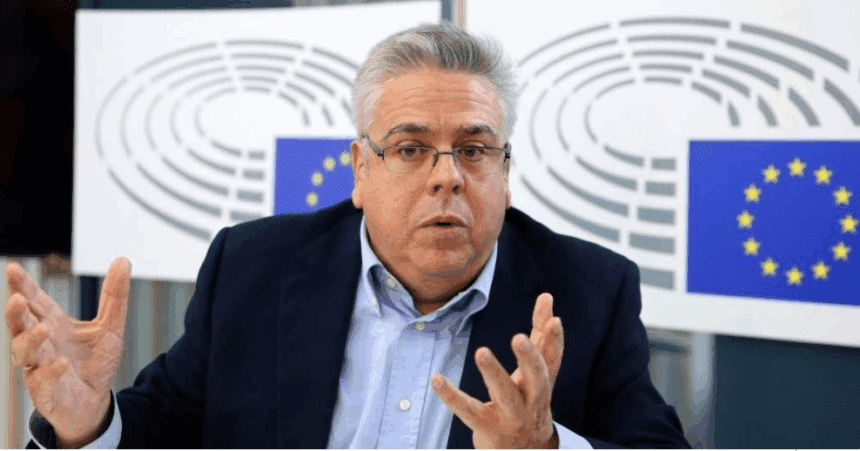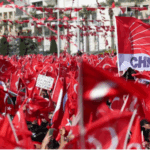Turkey is undergoing an “unprecedented level of democratic backsliding,” Nacho Sánchez Amor, the European Parliament’s rapporteur on Turkey, said on Wednesday as he reacted to the European Commission’s 2025 country report. He argued that Ankara’s decline has accelerated over the past year, particularly in core EU membership benchmarks on the rule of law, amid intensifying pressure on the opposition and the media.
Sánchez Amor said the deterioration has been laid bare by the arrest of Istanbul Mayor Ekrem İmamoğlu and by continuing pressure on opposition municipalities from the Republican People’s Party (CHP) and the pro-Kurdish Peoples’ Equality and Democracy Party (DEM Party), as well as on segments of the business community. “The accession process is now completely frozen,” he said, adding that the government’s takeover of media through state-appointed trustees and the harassment of journalists resembles a “Russian model of society.”
Citing the gulf between legislative promises and judicial practice, he dismissed Ankara’s frequent “reform packages” as cosmetic. “No matter how many judicial reform packages you prepare, if your courts are trying 13- or 14-year-old girls on terrorism charges, it is complete nonsense,” he said, describing the case he referenced as a “most horrible” illustration of Turkey’s rule-of-law crisis.
That case—widely discussed in Turkey as the “girls trial”—brought terrorism charges against 41 women, including 14 minors, for routine religious and educational activities allegedly linked to the faith-based Gülen movement. An Istanbul court convicted 19 defendants in September, with prosecutors citing Quran study, praying, tutoring, bowling, attending social gatherings and living in shared apartments as evidence. President Recep Tayyip Erdoğan has pursued followers of the movement since corruption probes in December 2013 implicated members of his circle; he designated the network a terrorist organization in 2016 and intensified the crackdown after the failed coup that July.
Sánchez Amor also called the escalating conflict between Turkey’s Constitutional Court and lower courts “incredible,” arguing that the government’s refusal to implement binding European Court of Human Rights (ECtHR) rulings has set the tone for domestic judicial defiance. Local courts and the Court of Cassation, he said, have increasingly disregarded the Constitutional Court’s authority, leaving the country without a meaningful separation of powers. He criticized the absence of accountability for prosecutors and judges who act in line with political interests, pointing to Istanbul’s chief public prosecutor as an example of how the judiciary is being used as a tool of executive power.
Against this backdrop, the rapporteur said it is impossible to describe Turkey as a state governed by the rule of law or to speak meaningfully about its EU candidacy. European leaders, he added, now treat Ankara less as a candidate country and more as a “strategic partner.” He urged the Turkish government to choose whether it genuinely wishes to move closer to the EU’s political community or to focus narrowly on security cooperation. While noting that cooperation on trade, security and migration continues, he stressed that EU membership requires meeting democratic standards rather than merely aligning on interests.
Sánchez Amor said practical engagement could still advance on files such as modernizing the EU-Turkey customs union, visa liberalization, migration management and post-war reconstruction efforts in Gaza. Those dossiers, he emphasized, fall under neighborhood and partnership ties, not accession. “The EU is a club of democracies,” he said. “Its founding principles are not drones, weapons or military power, but an independent judiciary, a free press and respect for fundamental rights.”
Ankara has long rejected accusations of politically motivated prosecutions and insists its judiciary acts independently. But Sánchez Amor’s remarks, amplifying the Commission’s findings, underscore a widening consensus in Brussels that without a demonstrable reversal—freeing opposition figures, implementing ECtHR judgments, restoring judicial independence and easing pressure on media and civil society—Turkey’s accession path will remain at a standstill.



